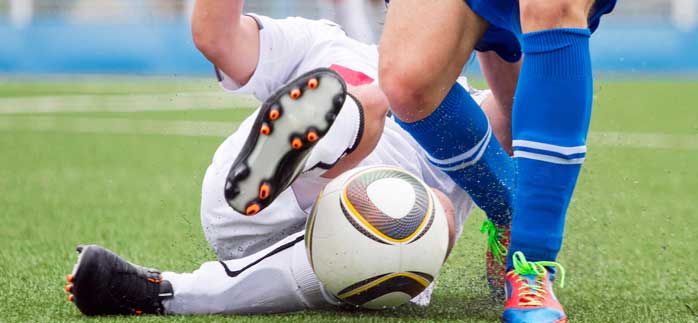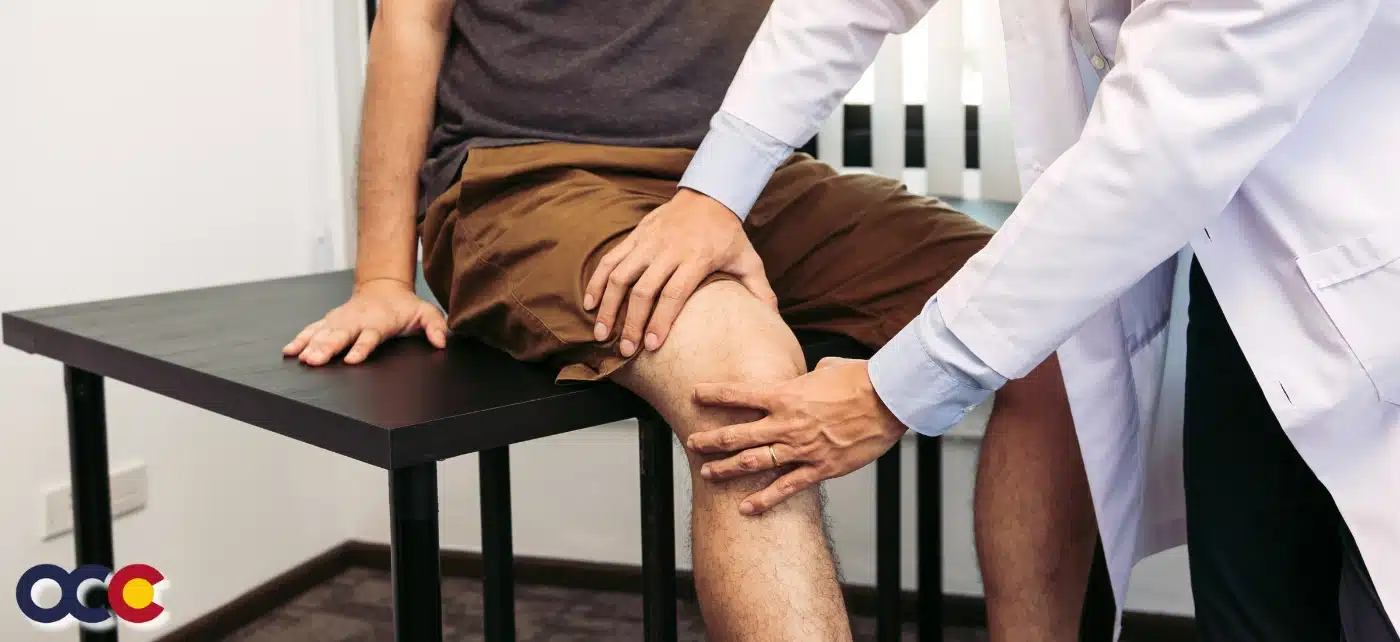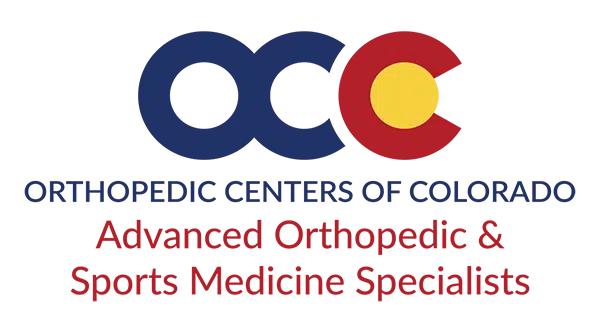Snow may be covering many area soccer fields right now, but whether it’s club and high school spring soccer or the adult league you’ve been looking forward to all winter, off-season conditioning and indoor sessions have given way to the first days of outdoor cuts on turf and grass. It’s this time of year that, despite smart training, we see more patients for meniscus surgery, whose hard winter work has been quickly undone by a meniscus tear.
To keep you on the field and minimize down-time, it’s important to recognize the vital difference between soreness and pain – and what the pain may be telling you. Soccer is a sport built on running, cutting and twisting moves – both offensively and defensively – and many of these actions have the potential to strain or tear a vulnerable part of your knee.
Meniscus tears can be contact or non-contact injuries that occur during quick, twisting or hard-planting movements on the weight-bearing knee. Whether you are attacking a defense or mirroring an opposing player, unfortunately, these moves place strain on the weakest element of your shock-absorbing knees, and a moderate or severe tear often requires meniscus surgery.
What is a meniscus tear?
A meniscus tear is damage to one (or both) of the c-shaped cushions that stabilize and protect your joint. The severity of the meniscus tear can vary from a minor, treatable with RICE (rest, ice, compression, elevation) to a moderate or major tear requiring meniscus surgery to repair damage to the meniscal cartilage. Meniscus tears are more common in adult athletes (30 years and older) simply because the menisci loses some of its resiliency as we age. However, severe injury can occur at any age and it’s important to recognize an injury that requires immediate care.
Common signs of a meniscus tear, and when you might need meniscus surgery
The most common signs of a meniscus tear can vary depending upon the severity and type of tear. The range of symptoms can vary from an achy nuisance type of discomfort often associated with some swelling to a popping sound that the knee meniscus cartilage makes as the cartilage breaks free that will frequently prevent the athlete from fully extending their knee ( a locked knee). In the more acute situation, the athlete may experience a decreased range of motion and either sharp pain or the inability to stop themselves when they attempt a squat to test knee stability.
If you experience a severe knee injury or any meniscus tear symptoms, do not continue to walk on your injured leg as you risk further damage. Tell your coach, parent or trainer immediately and seek medical evaluation. The knee can be properly splinted and crutches utilized to protect the meniscus tear from further damage while you seek care. Prompt diagnosis and protection of a meniscus tear – including determining whether the tear is severe enough to require meniscus surgery – will minimize recovery time and maximize post-surgery knee function.
Is meniscus surgery right for me?
Meniscus surgery is an arthroscopic treatment to either repair or remove a meniscus tear. Because it’s minimally invasive, it’s a good treatment at many ages, allows for a fairly rapid recovery and is often the best (or only) option for a full recovery. Meniscus surgery provides the optimal way to repair the damage if possible or remove any damaged meniscal cartilage that may be causing any pain or discomfort. There are also techniques now available to either replace a segment of the meniscus or the entire meniscus if indicated. Meniscus surgery is an out-patient procedure that lasts approximately an hour. Whether you are an athlete or not, your orthopedic specialist will work with you to determine if meniscus surgery provides the best option for a positive outcome.
Recovering from meniscus surgery
Recovery time from meniscus surgery can range from three weeks to three months, depending on the severity of the meniscus tear and the procedure required to correct it. Recovery plans involve rest and rehabilitation and are tailored to the severity of the meniscus tear, each patient’s physical condition and best practices in recovery and rehabilitation. Rehab plans are designed to regain function and range of motion and to return to pre-injury levels of activity.
In sports (and life) reaction time is everything. That’s true whether it’s making a split-second decision during a game or making a decision about your injury. At Advanced Orthopedics and Sports Medicine, we want you to be able to quickly identify meniscus tears and give you the best treatment, rehab and support to get you back in the game. Schedule an appointment today with one of our orthopedic knee specialists to get back on your feet!

















